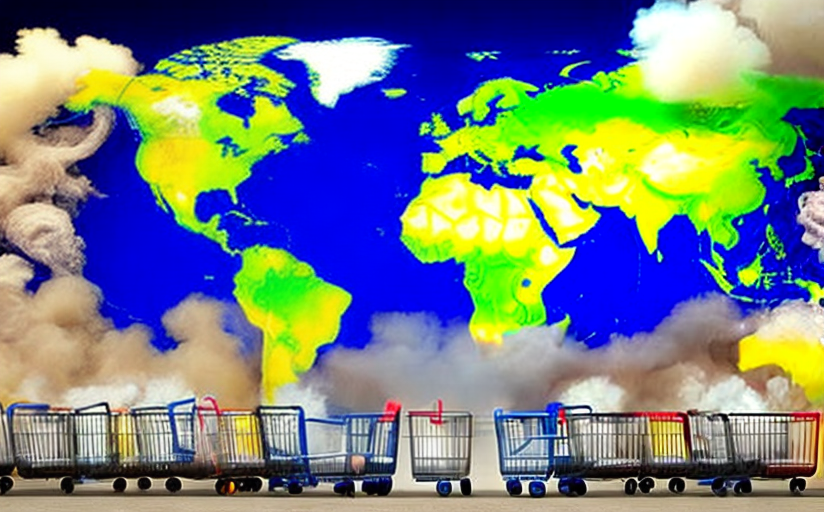Impact of Consumerism on Environmental Sustainability
Consumerism has dramatically influenced our society in the last century. The globalization of economies, along with the shift from a manufacturing-based to a consumption-based society, has led to vast consumption of goods and services. However, this exponential rise in consumerism has brought about significant adverse impacts on environmental sustainability, affecting the health of our planet and anticipating dire consequences for future generations.
Contributing Factors to Consumerism and Their Global Impact
The growth of consumerism can be attributed to several factors, including economic development, technological advancements, and cultural shifts towards materialism. Dynamic changes in advertising and marketing strategies have also played a critical role in fostering and encouraging materialistic behaviors, leading to increased consumption patterns. On a global level, the consequent high demand for energy, raw materials, and land required for production and disposal of goods has intensified environmental degradation and depletion of natural resources.
Consumer Habits and Environmental Degradation
Our consumption choices directly impact the environment, often leading to degradation of natural habitats, pollution, and biodiversity loss. For example, the demand for palm oil, a common ingredient in everyday consumer products, has led to massive deforestation and loss of wildlife habitat. The fashion industry's fast fashion model, characterized by rapid production and disposal of clothing, significantly contributes to waste, water pollution, and carbon emissions. Despite increasing awareness, consumers continue to acquire, use, and dispose of products without considering the environmental implications.
Sustainable Consumption
Sustainable consumption is a concept that seeks to balance society's needs for goods and services with the capacity of the planet to provide them, without compromising the ability of future generations to meet their own needs. Encouraging consumers towards sustainable consumption—buying less, choosing sustainable products, and recycling effectively—can have a profound positive impact on our environment.
Strategies for Mitigating Consumerism's Effects on the Environment
Some strategies to foster sustainable consumption include focusing on long-term utility rather than short-lived satisfaction, promoting sustainable sourcing and production methods, boosting education and awareness, and using labeling and certification schemes to enable consumers to make informed choices.
Responsibilities of Corporations and Policymakers
Realizing sustainable consumption involves the shared responsibility of businesses, governments, and individuals. Companies must realize their integral role in shaping sustainable consumption behaviors through their production and marketing decisions. Policymakers, on the other hand, have the role of setting standards and regulations that favor sustainable production and consumption, thereby incentivizing businesses to adopt sustainable practices and consumers to make sustainable choices.
In conclusion, by understanding and acting responsibly towards our consumer habits, we can help enhance environmental sustainability for a healthier planet for future generations.


















Comments
Leave a Comment